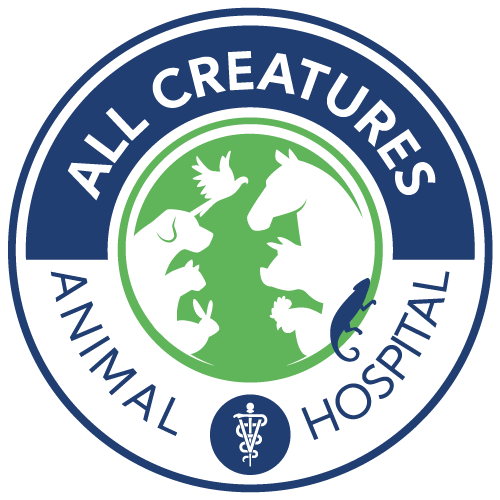What is the most common heart disease in cats?
Our cats most typically have HCM, which is hypertrophic cardiomyopathy. That probably makes up about 60% of our cardiac cases for our kitty cats.
What are the signs and symptoms of heart disease in cats?
It's variable. Some of our cats don't show any symptoms at all, so they're asymptomatic. Other cats could be clinically in distress. They could have respiratory issues where they're open-mouth breathing. They can present with hind limb paralysis due to blood clots secondary to heart disease. It could be quite variable.
How is heart disease diagnosed in cats?
For our cats, there are several ways to diagnose heart disease. The most diagnostic and definitive would be a cardiac workup, which would include thoracic radiographs, ECG, blood pressure, and an echocardiogram.
What types of tests are used to evaluate a cat's heart health?
An echocardiogram is by far the more definitive diagnostic tool we can use to determine the cardiac health of our feline patients. There are some blood tests out there, too, that may be used for some screening ahead of time, but they are not as definitive as our echos.
How can I tell if my cat is at risk for heart disease?
Some of our cats are more predisposed to cardiac disease, in particular breeds like Maine Coons or Ragdolls. Some Bengals can be more predisposed, so breed disposition is certainly one factor. Diagnostically, some screening blood tests, such as proBNP, may help. We could run that during an annual exam to check, and also check blood pressure.
Blood pressure can also contribute to our cat's cardiac health. Another endocrine disease that can contribute to cardiac disease is hyperthyroidism, which is fairly common in our cats. These could all be screening tools to check and offset or be preventative in helping our cats prevent cardiac disease down the road.
What treatments are available for cats with heart disease?
Treatments will be consistent with their symptoms and the findings on the diagnostic tests. If they are asymptomatic and the diagnostics show that they're in the early stage of heart disease, it may just involve rechecking the cardiac workup on an annual basis or every six months.
If they are symptomatic, it will be based on the symptoms and the diagnostics of what is found to be the problem with the heart. That could involve blood pressure medication, anti-coagulants, or medication to keep fluid off the lungs, like a diuretic.
Can heart disease in cats be cured, or is it a lifelong condition?
For most of our cats, it is a lifelong condition that we manage, and many of them we manage well. It will depend on what we find with the diagnostics.
What dietary changes should I consider for a cat with heart disease?
These are very broad questions. It depends on if they're symptomatic and what the diagnostics show to be the problem with the heart disease. It may be just maintaining them on their regular diet, all the way to cardiac diets that are lower in sodium.
How often should my cat have checkups if they have heart disease?
For our cats with checkups, if they've been asymptomatic and we are just watching them, generally we'll recommend rechecking a cardiac workup every six to 12 months to follow the progress and intervene as soon as possible when things start changing. I
f we've got a symptomatic cat, say a cat that has already presented with congestive heart failure or a blood clot that has caused other issues, then certainly the recommendations would change and most likely be more frequent than six months. We probably want to do it every two to three months. Once they're stable, recommendations tend to change and maybe lengthen out how often we need to recheck them.
How can I recognize an emergency situation related to my cat's heart condition?
Typically, our cats that have an emergency related to their heart health will present in a couple of ways.
- A lot of times, they experience respiratory distress, have difficulty breathing, and open-mouth breathing.
- They usually go off their food and become anorexic.
- They may be coughing, gagging, or vomiting.
- If they throw a blood clot, they often throw the blood clot towards their hind limbs, and sometimes become paralyzed in their hind limbs, and it is very painful.
If there are any of these signs, I would recommend emergency urgent care immediately.
What is a normal cat's heart rate, and what should I do if my cat's heart rate is elevated?
Our cats typically have fast heart rates. You would imagine a normal heart rate for a cat that comes into the office to be between probably 120 and 180. If the heart rate is over 200, that's elevated, and we should look into that further.
Is heart disease a reason for putting a cat down?
It will depend on the signs and symptoms when they present, the diagnostics that are done, and what's found. It truly depends on how they respond to treatment as well.
Many cats will show up in very much distress, and we can intervene with medication and supportive care, and they respond wonderfully. If they respond in such a positive manner, we often can maintain them for many months to a couple of years, doing very well.
Cardiac disease by itself is not a reason to euthanize a feline patient. If there's a lack of response or they present in such a condition that extending their life or saving them doesn't seem likely to be successful, then maybe we would consider that at that time.
If you live in or near Granbury, TX, and are looking for horse care, contact us at (817) 326-6262 to set an appointment. You can also email us at [email protected]. Our staff would love to talk with you!
